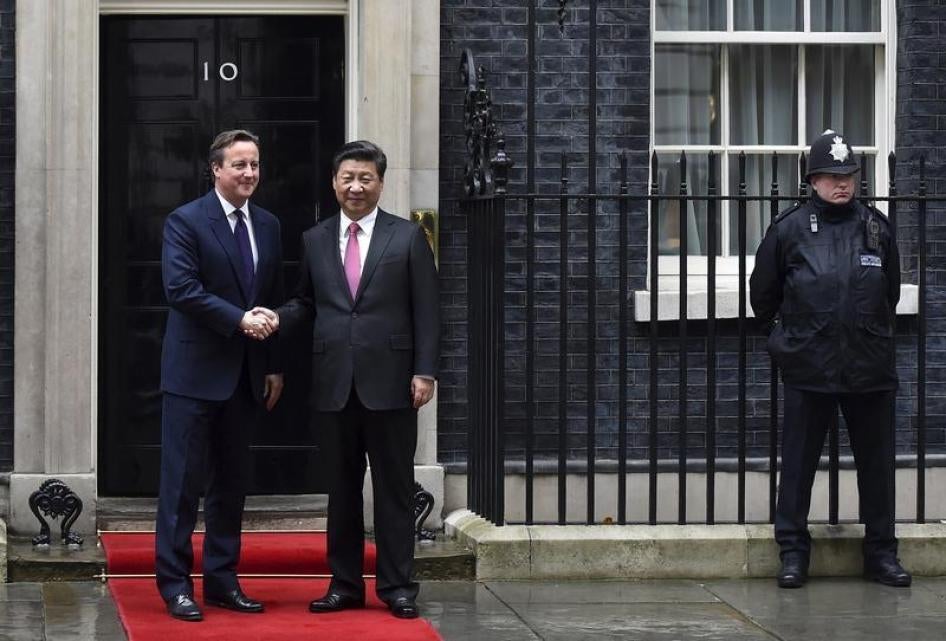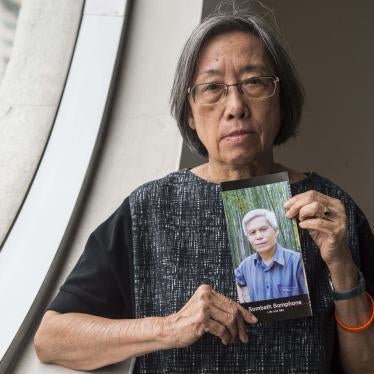An arrest and overnight detention for holding up a pro-democracy banner in the middle of a public road, followed by a raid on the home of the “suspect” and seizure of computer equipment. A pair of arrests for waving flags at a motorcade. The apparent basis for these detentions: preventing, “breaches of the peace” and “suspicion of conspiracy to commit threatening behavior.”
If these reports, involving one Chinese and two Tibetan activists, had come from Beijing, they would be distressing but not surprising. But the fact that they took place in London during Chinese President Xi Jinping’s visit only deepens concerns about the UK’s willingness to accommodate Beijing’s authoritarian sensibilities.
It’s standard operating procedure for Chinese authorities to request that protests be prevented entirely or kept out of sight of officials traveling abroad—but it’s hardly normal for rights-respecting democracies to limit peaceful protest in ways that resemble Beijing’s zero tolerance policies.
Veteran democracy activist and Tiananmen Square massacre survivor Shao Jiang and two UK-based Tibetans, Sonam and Jamphel, were detained protesting outside an event at which President Xi was speaking in central London. While all three and other demonstrators held signs and shouted slogans, no evidence has been produced that any of them engaged in conduct that could by a reasonable standard be considered threatening, especially in light of the heavy police presence. Video footage suggests that police quickly pushed and escorted Shao off the road, and Shao had put up no resistance.
Shao Jiang is now out on bail, but only after agreeing to restrictions on his movements that would prevent him from protesting anywhere near President Xi. President Xi, of course, continues to be free to travel wherever he likes and say whatever he wants, unchallenged by a British government too timorous to publicly question him about his government’s ferocious crackdown on peaceful dissent.
Britons no doubt have diverse views on deepening UK-China ties, but presumably they also continue to cherish the rights to peaceful free speech and assembly. It is respect for those rights that has drawn people denied them elsewhere to seek safe haven in the UK, and while Xi’s visit is hardly the first time free assembly has been limited in the UK, the idea that those can be compromised during Chinese state visits is deeply disheartening to precisely those people. In order to show independence from Chinese political whims, British authorities should immediately commit to a public review of the decisions leading to the detentions and make clear that all public authorities will respect everyone in the UK's right to freedom of speech and peaceful assembly no matter who they are protesting against.








